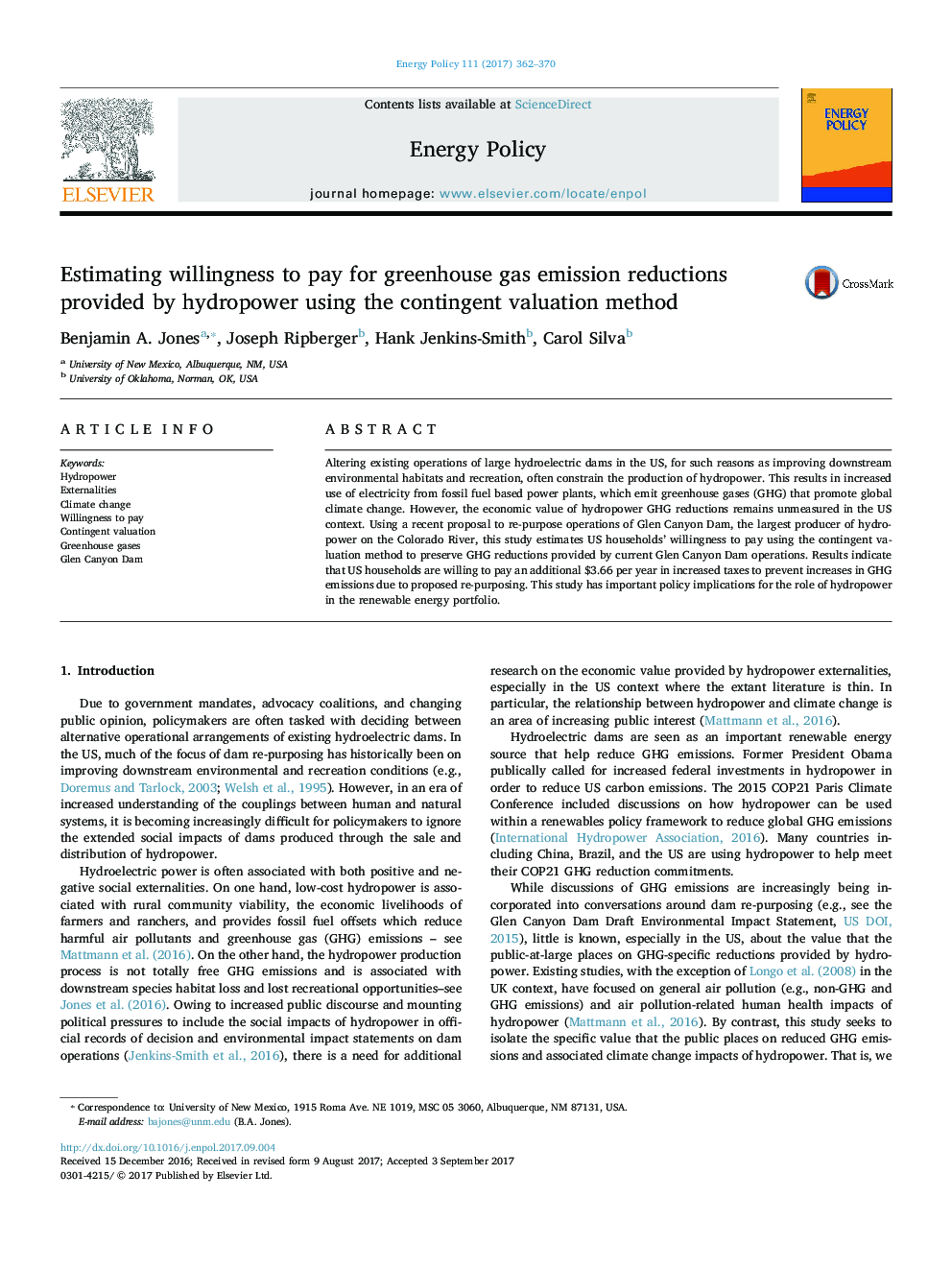| Article ID | Journal | Published Year | Pages | File Type |
|---|---|---|---|---|
| 5105510 | Energy Policy | 2017 | 9 Pages |
Abstract
Altering existing operations of large hydroelectric dams in the US, for such reasons as improving downstream environmental habitats and recreation, often constrain the production of hydropower. This results in increased use of electricity from fossil fuel based power plants, which emit greenhouse gases (GHG) that promote global climate change. However, the economic value of hydropower GHG reductions remains unmeasured in the US context. Using a recent proposal to re-purpose operations of Glen Canyon Dam, the largest producer of hydropower on the Colorado River, this study estimates US households' willingness to pay using the contingent valuation method to preserve GHG reductions provided by current Glen Canyon Dam operations. Results indicate that US households are willing to pay an additional $3.66 per year in increased taxes to prevent increases in GHG emissions due to proposed re-purposing. This study has important policy implications for the role of hydropower in the renewable energy portfolio.
Keywords
Related Topics
Physical Sciences and Engineering
Energy
Energy Engineering and Power Technology
Authors
Benjamin A. Jones, Joseph Ripberger, Hank Jenkins-Smith, Carol Silva,
